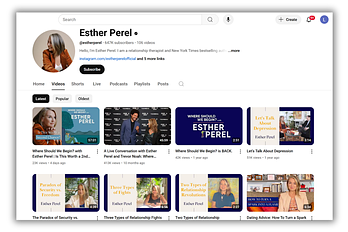August 09, 2022 - Coaching Business
How to find your niche as a life coach
Finding your niche as a life coach is important. Follow these steps to find out how...

If you’re just starting out in your coaching business, you’re probably asking yourself 101 questions about niching..
How important is having a niche?
When should I decide?
How narrow should my niche be?
Would having a niche make it harder to find clients?
Let’s take things one step at a time and break it down.
WHY IT’S IMPORTANT TO FIND YOUR NICHE AS A LIFE COACH
As a coach, your mission is to assist your clients in specific areas of their lives to overcome challenges as they go on a journey of self-improvement and development.
The critical question is - who, exactly, is your client and what do you help them with?
Is it ‘anyone struggling with a life challenge’?
Gosh, that would be just about everyone on this planet wouldn’t it?
“Yes! That means I have a huge potential client base”, you say.
True, but the next question you have to ask yourself is - how will I market my services to this huge market? What will my message be to them?
Let’s play along with this…
You craft your ‘About Me’ blurb as follows:
“I help anyone facing life challenges to overcome their struggles and get the prize they're looking for.”
Now let’s imagine Joanna, a citizen of planet Earth, who currently has a challenge she needs to overcome. She’s finding it challenging to manage her ADHD child and cope with the stress that she is often under.
Notice that she’s not looking to address a general ‘life challenge’, but a very specific situation in her life right now that’s causing distress. Her search for help is therefore very focused - how to manage children with ADHD in a stress-free way.
She comes across your profile on a life coach directory and sees your ‘About Me’ blurb.
She scrolls further down the directory listing and sees the profile of another coach whose mission statement is:
“I help stay-at-home moms to effectively parent children with ADHD so that they can form close, loving relationships while staying calm and having more time to themselves.”
Which coach’s profile do you think would appeal to Joanna and ‘get the click’? The answer is pretty obvious, isn’t it? The coach who has clearly spelt out who she helps and the benefits of working with her would be the clear choice!
Coaches with a clearly defined niche are able to crystallize their mission and messaging to attract their ideal client.
Do you see now why finding your niche as a life coach is important?
TOP 4 REASONS WHY FINDING A COACHING NICHE IS IMPORTANT
1. A niche helps you to stay focused. When you’re clear about who you serve, you will have clarity in your thought processes. You can devote more time to create value for your clients and for your business.
2. A niche helps you to position yourself as an expert in the subject. It builds your reputation and authority in a specific area of expertise.
3. Attract ideal clients. Your messaging can be tailored specifically for who you help. You can target your ideal clients at the right place, at the right moment and with the right service offering that will resonate well with them.
4. A niche helps you to evolve and grow as a coach. Believe it or not, you may expand your offer and grow from your initial chosen niche. For example, your initial niche may be ‘to help tech entrepreneurs battle stress and anxiety so they can have healthy relationships’. Over time, as you gain more insights and a deeper understanding of your clients’ struggles, you may evolve to expand your offer ‘to help tech entrepreneurs run a successful business so that they can spend more cherished time with their family and friends’.
WHEN SHOULD YOU DECIDE ON YOUR COACHING NICHE?
First, you need to understand that a coaching business is made up of many elements. Coaching clients is a BIG part of what you do, but it’s just one aspect of the business.
Other aspects include:
-
Discovery calls (pre-selling)
-
Creating coaching programs
-
Formulating a marketing strategy
-
Ensuring a robust pipeline and a healthy cash flow
-
Managing the back-of-house admin
As you can see, it takes a lot of effort, time and persistence to run a business, especially when you’re doing it single handedly.
When you’ve made the important and life-changing decision to become a full-time coach, you’re all in!
You know that it’s make or break. If the business doesn’t work, it’s back to the 9-to-5.
Manage Your Coaching Practice in One Place
CoachVantage automates your business workflows so you can focus on impactful coaching results.
Ouch!
To start off on the right footing and increase your success rate, know this:
A good business begins with an even better business plan.
This is why finding your coaching niche is a big deal - it is a key tenet of a solid business plan.
Therefore, who you help and what you help with (i.e. your niche) should be clearly defined even before you launch your business and promote your coaching services on your website or social media.
Your business plan needs to be strategized around your niche - the addressable market, the size of the problem, your estimated earnings, your mission statement, your website design, your coaching programs, your expenditure, and even down to when, where and how you will hold your coaching sessions.
Every detail needs to be centered around your niche and your target audience - demographics, their likes and dislikes, their favorite hangouts, their fears and motivations, their spending capacity, etc
All of this must be well researched and thought through so that you can plan your business, offers, marketing plan and strategy, client acquisition and earnings forecast with proper due diligence.
The takeaway here is to do your research and decide on your niche before you even launch your coaching business.
TIPS ON HOW TO CHOOSE YOUR COACHING NICHE
Yikes…What if I choose the wrong niche?!
With a lot at stake and not being able to crystal-ball the future, the core emotion in the hearts of many coaches when trying to decide on a niche is: fear.
According to Cindy Schulson, Marketing with Heart Vs. Hype, the 4 main reasons, why coaches find it difficult to choose their niche are:
1. Afraid of turning away business
2. The fear of being boxed in
3. The fear of choosing the wrong niche
4. Coaches just don’t know how to find their niche
These tips should serve as a guide for you on how to find your niche as a life coach:
List out your skill sets
To be able to assist your clients, you need to know your strengths and weaknesses as a coach.
Sit down with your family members and even your existing clients to find out more about yourself and what you will need to work on. They can help point out your blind spots.
List out probable niches
The reason for this list is to encourage you to research your coaching heroes and your competitors to fuel your aspiration. You will have a better idea of what has worked for them, what didn’t and what to apply to your own coaching business.
Can your favorite niches be broken down into sub-categories?
Niches are all about specifications. The more you can drill down to sub-categories, the more chances you will have to get ideal coaching clients and to stand out among your competitors.
Who do you want to help?
Who do you feel you resonate most with? Do you find yourself gravitating toward a certain type of audience? Is there chemistry?
During practice coaching sessions or interactions with people at the workplace or with your coach peers, you may already have an inkling or a ‘feeling’ about who would be a good fit.
These factors can help you define your target audience.
What certification and practical experiences do you have?
Compare this side-by-side and it will help you figure out where you stand in your niche.
Research shortlisted niche markets
Key factors would be the size of the potential audience. Don’t make the mistake of niching down to an overly narrow or unique group of people that just will not make good business sense.
After all, you still need to ensure that your business is successful and profitable! If you’re only getting one new client a month because your target market is tiny, pivot quickly and move on.
Extensive research on the market size and demographics of your identified niche is extremely important so if you need to, hire an experienced business consultant/market researcher to assist you with this.
You should identify at least 3 to 5 potential niches so that you can do some comparative analyses before landing on the final one that makes practical business sense, in addition to resonating well with you.
CONCLUSION
Finding your coaching niche takes an investment of time. Do it carefully and don’t rush right into the first one that comes to mind!
The research and due diligence will be good for your business in the long run and will pay off.
As your skills evolve, you may continue to focus on your chosen niche, become established as an experienced coach in the subject area, and be more confident in charging more for the value you help deliver.
When you have identified your niche and your mission statement, use it in your branding and marketing channels. It should be synonymous with your name and your brand. In time, your target audience will associate your name with who you help.
CoachVantage is a coaching platform that lets you clearly spell out your ‘About Me’ and mission statement in your coaching program sign-up pages. Clients will also see it on your booking page when they schedule a discovery call with you.
Click on the button below to see how CoachVantage can help build your online presence.

Glen Oliveiro
Founder of CoachVantage
With a pulse on the coaching industry, Glen personally engaged with hundreds of coaches to develop a platform that addresses their day-to-day challenges. A visionary entrepreneur, Glen is committed to revolutionizing coaching practices through the innovative solutions offered by CoachVantage.
https://www.coachvantage.comYou might also like...
.png)
Top Social Media Marketing Tips for Coaches that Work in 2025
.png)
Top 7 Health and Wellness Coaches That Can Aid You On Your Fitness Journey




